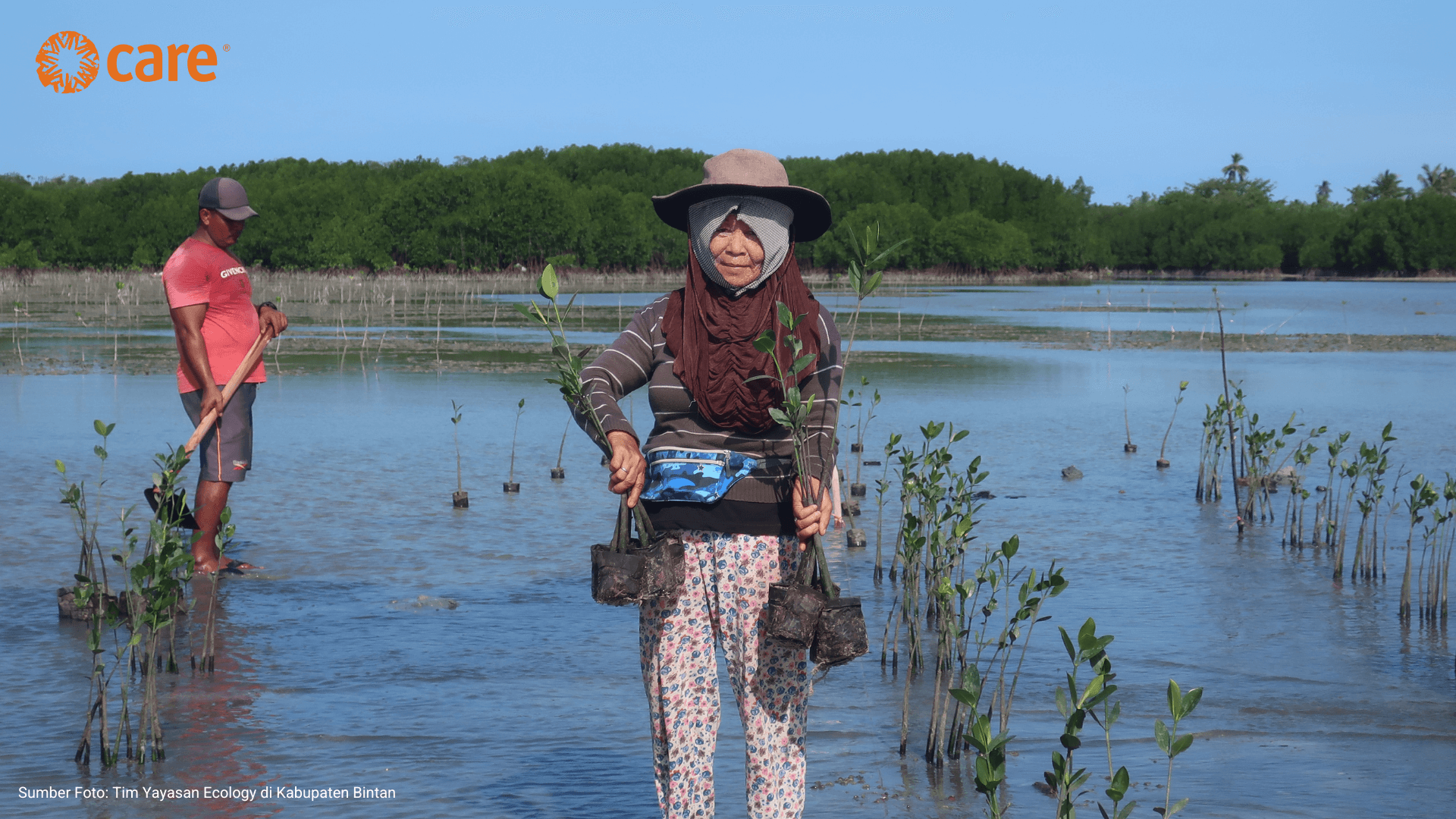Women in Indonesia face a variety of challenges, ranging from vulnerability to natural disasters and the climate crisis to insufficient economic literacy. Women also experience poverty and limited access to basic services such as health and education, hampering their active participation in social, economic, political and ecological matters.
Living in Indonesia means having to be prepared for natural disasters such as earthquakes, tsunamis, volcanic eruptions, and landslides. Meanwhile, there is also the threat of drought and floods triggered by the global climate crisis. Women are usually among the most vulnerable in these situations, consequently they need to have the ability to anticipate and adapt when they have to face it.
Not everyone has equally benefited from the country’s economic growth. In order for women to benefit from the improved economy, they also need adequate skills in managing their livelihood independently.
Indonesia needs the role of women to reinforce development. The government also realizes that women holds an important position in driving the country’s economic growth. Thus, in parallel with policy-making that are more supportive of women’s public roles, women’s abilities and participation in development must be increased.
This is in line with Yayasan CARE Peduli (YCP)’s approach which promotes gender equality and womens voices in all of its programs which must be accompanied by transformative changes to achieve this goal.
Through programs that focus on social justice and poverty alleviation, YCP seeks to contribute in efforts to build the capacity of Indonesian women.
YCP seeks to build community agency from all walks of life – be it men, women, girls and boys; change the relationship between them, and transform the structure so that they can reach their full potential in life. With that, in an equitable manner, they can contribute to and benefit from development.
In implementing the program, women play important roles and are ready to support other women in an effort to make them resilient as well. When we say a women is resilient, their distinctive characteristics are high self-esteem, knowledge of their strengths, and the ability to manage priorities and make decisions. They are able to speak up and make their own choices. Resilient women can also access resources and information and share them with others. They understand about risk, vulnerability, and how to mitigate it. They are also able to learn from their life experiences.
This writing shares stories of some of the resilient women that YCP met. From garment factories to purple sweet potato fields, West Java to East Nusa Tenggara, sparks of positive changes show in their lives. YCP hopes that their stories will inspire all parties to work together to build the capacity of more resilient women.
We believe that with more resilient women, Indonesia will become stronger and more resilient.
Happy reading.





